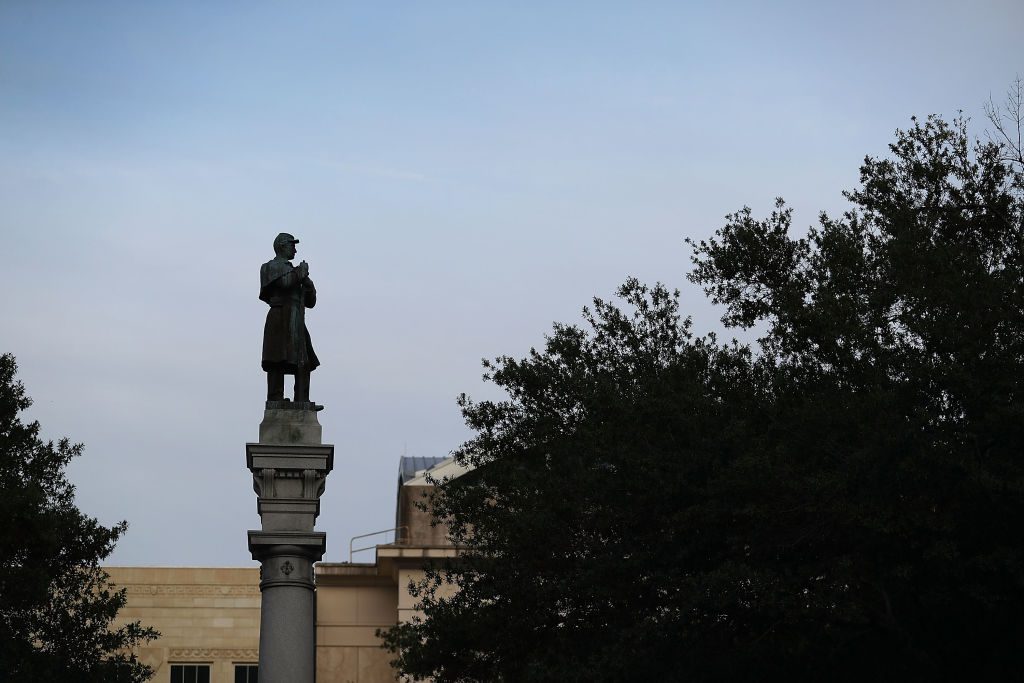Crime
Florida Just Made It a Felony to Damage Confederate Monuments as Part of Its Controversial New ‘Public Disorder’ Law
Protesters who damage historic property will now face harsher punishments, including prison sentences.

Protesters who damage historic property will now face harsher punishments, including prison sentences.

Taylor Dafoe

Republican Governor Ron DeSantis has made it a felony to topple a monument in Florida.
The new bill signed into law this week, titled the “Combating Public Disorder Act,” was conceived as a means of curtailing rioting in the state, but it contains a number of provisions that many fear will stifle citizens’ rights to peacefully organize or protest.
Under the act, any person who “willfully and maliciously” damages a memorial or other piece of historic property can be charged with a third-degree felony, which is punishable by up to five years in prison. Meanwhile, the felony charge will be upped to the second degree for those who destroy or topple such objects, which carries a sentence of up to 15 years.
Notably included in the bill’s definition of “memorial” is any marker that “honors or recounts the military service of any past or present.” Fifty-four Confederate Monuments still stand in Florida, according to a count last year.
HB 1 is racist, unconstitutional, and anti-democratic, plain and simple. The bill was purposely designed to embolden the disparate police treatment we have seen over and over again directed towards Black and brown people who are exercising their constitutional right to protest.
— ACLU of Florida (@ACLUFL) April 15, 2021
The bill also makes it a felony to incite or participate in an “aggravated riot,” which is defined as a “public disturbance involving assembly of three or more persons” who act with a “common intent to assist each other in violent and disorderly conduct.”
In a statement released after Florida’s Republican-controlled Senate passed the bill last week, the executive director of the state’s ACLU chapter, Micah Kubic, called the act “racist, unconstitutional, and anti-democratic, plain and simple.”
“The bill,” Kubic continued, “was purposely designed to embolden the disparate police treatment we have seen over and over again directed towards Black and brown people who are exercising their constitutional right to protest.”
Upon signing the bill into law on April 19, DeSantis said he was “taking an unapologetic stand for the rule of law and public safety.”
“We are holding those who incite violence in our communities accountable, supporting our law enforcement officers who risk their lives every day to keep us safe, and protecting Floridians from the chaos of mob violence,” the governor said in a statement. “We’re also putting an end to the bullying and intimidation tactics of the radical left by criminalizing doxing and requiring restitution for damaging memorials and monuments by rioters.”
Governor DeSantis’s office did not respond to a request for comment.